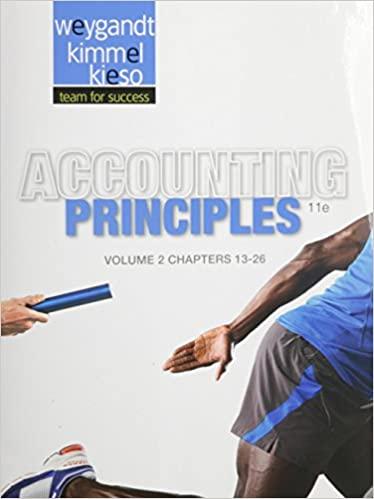Question
The Case of Cooters Alternative Dispute Resolution Cooters Restaurant used an alternative dispute resolution program. Employees of Cooters had to sign an agreement to arbitrate
The Case of Cooters Alternative Dispute Resolution
Cooters Restaurant used an alternative dispute resolution program. Employees of Cooters had to sign an agreement to arbitrate employment-related disputes to be eligible for raises, transfers, and promotions. Under the agreement, both Cooters and the employee agreed to resolve all disputes arising out of employment, including any claim of discrimination, sexual harassment, retaliation, or wrongful discharge, whether arising under federal or state law, through arbitration.
In a separate policy document not shared with employees until after they had signed the agreement, Cooters set forth the rules and procedures of its arbitration program:
The employee had to provide notice of the specifics of the claim, but Cooters did not need to file any type of response to these specifics or notify the employee of what kinds of defenses the company planned to raise.
Only the employee had to provide a list of all facts or witnesses and a brief summary of the facts known to each.
While the employee and Cooters could each choose an arbitrator from a list, and the two arbitrators chosen would then select a third to create the arbitration panel that would hear the dispute, Cooters alone selected the arbitrators that were put on the list.
Only Cooters had the right to widen the scope of arbitration to include award any matter, whereas the employee was limited to the matters raised in his or her notice. Only Cooters had the right to record the arbitration. Only Cooters could cancel the agreement to arbitrate or change the arbitration rules.
Sue Phillips had worked as a bartender at the Cooters restaurant for about five years before Cooters adopted its arbitration policy. Sue was given a copy of the agreement to arbitrate to review for five days and then sign. Approximately two years later, a Cooters official grabbed and slapped her buttocks. After appealing to her manager for help and being told to let it go, she quit her job. When she threatened to file a lawsuit for sexual harassment, Cooters filed an action in federal district court to compel arbitration of Phillips claims.
Should Sue be forced to settle her claim through arbitration? Why?
Assume your companys arbitration policy was exactly like Cooters. Name one aspect would you retain, and which one might you change? Why? Be specific.
Step by Step Solution
There are 3 Steps involved in it
Step: 1

Get Instant Access to Expert-Tailored Solutions
See step-by-step solutions with expert insights and AI powered tools for academic success
Step: 2

Step: 3

Ace Your Homework with AI
Get the answers you need in no time with our AI-driven, step-by-step assistance
Get Started


